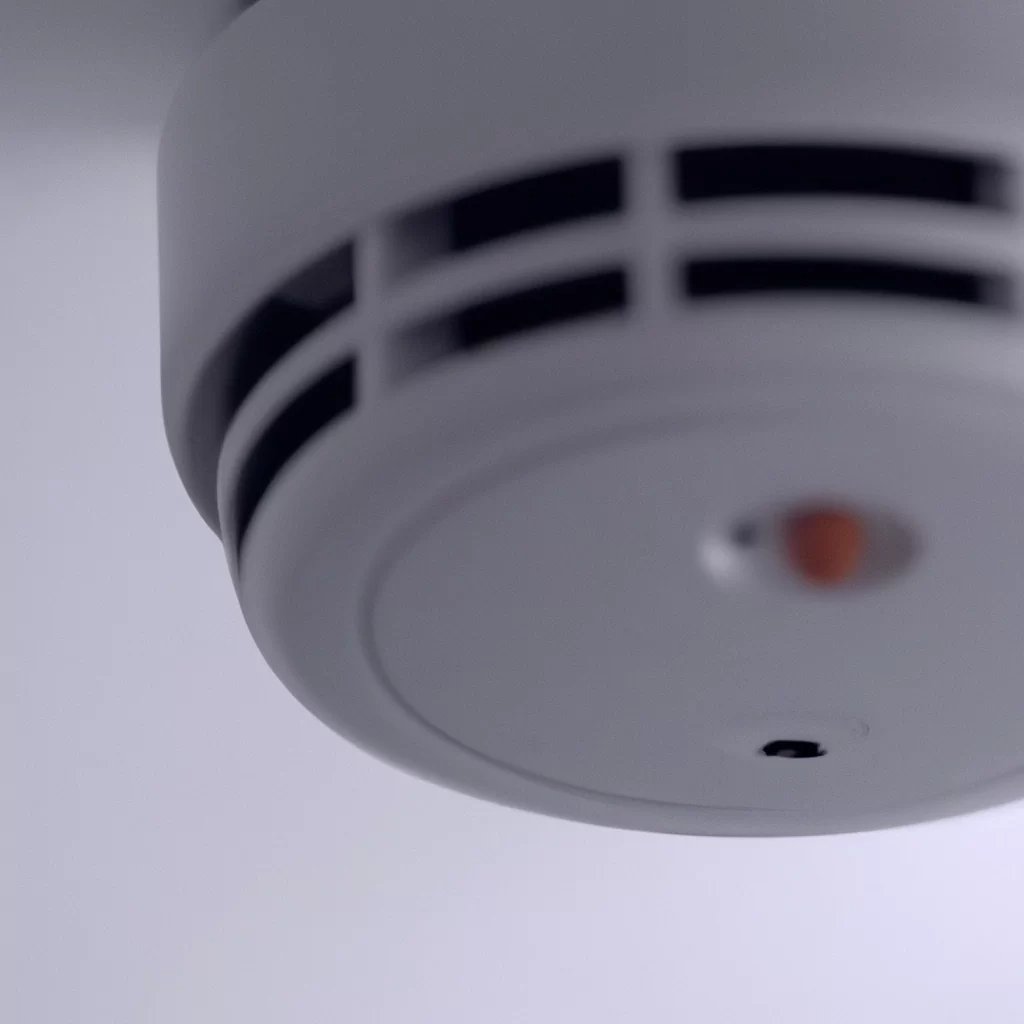How does a smoke detector work?


How does a smoke detector work?
Smoke detectors are essential devices for fire safety in homes and commercial buildings. These devices are designed to detect the presence of smoke, which is an indication of a potential fire. Smoke detectors are equipped with smoke sensors that are triggered when smoke is detected in the air. The smoke detector then emits an alarm, alerting the occupants of the building to evacuate immediately. In this article, we will discuss how a smoke detector works, its various components, and the importance of having a smoke detector in your home or workplace.
Components of a smoke detector
A smoke detector is a small device that is typically mounted on the ceiling or wall of a room. The device is made up of several components, including:
1. Smoke sensor: This is the most critical component of a smoke detector. The smoke sensor is designed to detect the presence of smoke in the air. There are two types of smoke sensors: ionization smoke sensors and photoelectric smoke sensors.
2. Power source: Smoke detectors are either battery-powered or hardwired into the electrical system of a building. Battery-powered smoke detectors are easy to install and require no electrical wiring. Hardwired smoke detectors are more reliable and are connected to the building’s electrical system.
3. Alarm: When smoke is detected, the smoke detector emits a loud alarm that alerts the occupants of the building to evacuate.
How does a smoke detector work?
Smoke detectors work by using a smoke sensor to detect the presence of smoke in the air. When smoke is detected, the smoke detector emits a loud alarm that alerts the occupants of the building to evacuate. There are two types of smoke detectors: ionization smoke detectors and photoelectric smoke detectors.
Ionization smoke detectors
Ionization smoke detectors work by using a small amount of radioactive material to ionize the air inside the detector. When smoke enters the detector, it disrupts the ionization process, triggering the alarm. Ionization smoke detectors are more sensitive to flaming fires, which produce small smoke particles.
Photoelectric smoke detectors
Photoelectric smoke detectors work by using a light source and a light sensor. When smoke enters the detector, it scatters the light, triggering the alarm. Photoelectric smoke detectors are more sensitive to smoldering fires, which produce larger smoke particles.
Importance of having a smoke detector
Smoke detectors are an essential component of fire safety in homes and commercial buildings. They are designed to detect smoke early, giving occupants enough time to evacuate the building before the fire spreads. Smoke detectors can save lives and prevent property damage by alerting occupants to a fire before it’s too late.
Tips for maintaining your smoke detector
To ensure that your smoke detector is functioning correctly, it’s essential to perform regular maintenance. Here are some tips for maintaining your smoke detector:
1. Test your smoke detector regularly by pressing the test button.
2. Replace the batteries in your smoke detector at least once a year.
3. Clean your smoke detector regularly to remove dust and debris.
4. Replace your smoke detector every ten years.
Conclusion
In conclusion, smoke detectors are essential devices for fire safety in homes and commercial buildings. They work by using smoke sensors to detect the presence of smoke in the air. When smoke is detected, the smoke detector emits a loud alarm that alerts the occupants of the building to evacuate. Smoke detectors can save lives and prevent property damage by alerting occupants to a fire before it’s too late. It’s important to perform regular maintenance on your smoke detector to ensure that it’s functioning correctly. By following these tips, you can help keep your home or workplace safe from the danger of fire.
Recent Posts
How do I create an engaging and informative online quiz or assessment?
Creating an engaging and informative online quiz or assessment can be a powerful tool for… Read More
What are the most effective methods for managing and reducing work-related stress in the hospitality industry?
Work-related stress is a common issue in the hospitality industry, where employees often face long… Read More
How can I improve my assertiveness and communication skills in a leadership position?
In a leadership position, assertiveness and effective communication skills are crucial for success. Being able… Read More
What are the key elements of a successful employee recognition and rewards program?
Employee recognition and rewards programs play a crucial role in motivating and engaging employees, as… Read More
How do I effectively manage and respond to customer feedback and reviews?
Customer feedback and online reviews play a crucial role in shaping a company's reputation and… Read More
What are the best strategies for effective time management as a stay-at-home parent?
Effective time management is crucial for stay-at-home parents who juggle multiple responsibilities on a daily… Read More